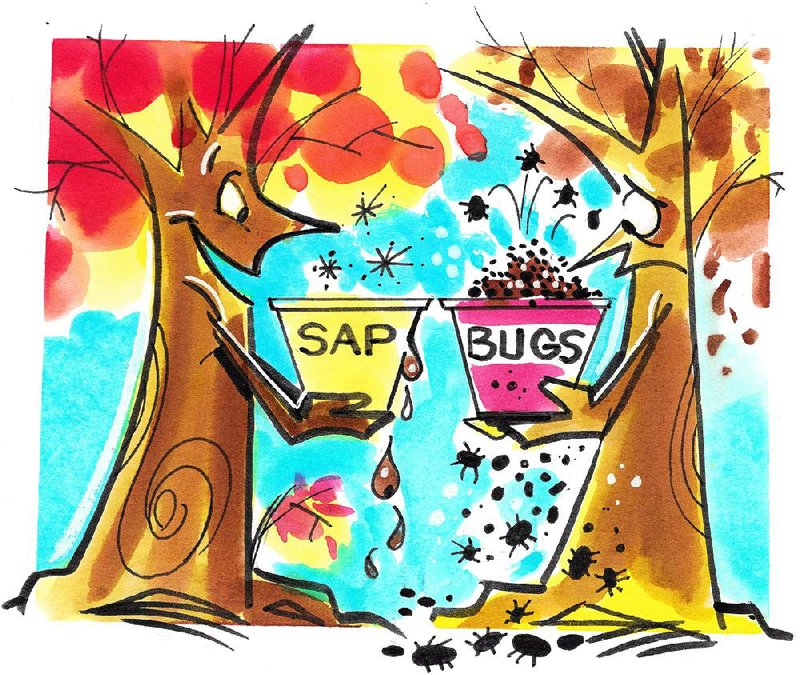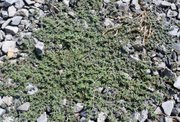Q We live in Cabot and planted two sugar maple trees several years ago. They have done fine until now. Last week the leaves of one of them suddenly turned brown, and the tree died. This week the other one did the same thing. There was no warning of any kind. They did not seem to be in any distress before they died. They are planted in full sun, and we water them regularly. Any idea what could have caused this?
A When the leaves turned brown, did they drop or remain attached to the tree? If they defoliated early, the trees may still be alive and will come back next spring. Did you spray anything in the yard for weeds, diseases or insects? Any fertilization? When they began growing this spring did they have a full set of leaves? One thing to look for is any toothpick-like protrusions on the trunk: Those could be caused by ambrosia beetles, which can kill seemingly healthy trees. Serious attacks that result in tree death usually occur during the leafing-out stage, but we can have more than one generation of them per year. Infested wood is distinctly discolored and can have a foul odor.
Q I would very much appreciate your opinion on the following. A family who has plots next to my family plots at a local cemetery wants to plant a couple of dogwood trees between the families' plots. I have to agree to this before they can do this. A representative of the cemetery advises against it, as he is afraid the roots will encroach on the markers and cause problems down the road. I hate to say no, but I lean toward taking the advice of the cemetery representative.
A First question: Is there water available for the dogwoods, and is there a little shade? Dogwoods are shallow-rooted trees that prefer morning sun and afternoon shade. If they are going to be totally out in the open and left to fend for themselves, they won't survive. If they have a good location and care, they would be beautiful small trees and would not typically uproot things.
Q I have lived in the same house for 20 years. On the southeastern (front) corner, I have managed to kill three dogwoods and now a serviceberry. The spot caps off a row of 20-year-old azaleas across the front of the house. The spot gets hot, bright, afternoon sun and sits in a wet spot from rain runoff and the lay of the yard. I would like a small ornamental tree for this spot. Any advice? I've thought of a crab apple and even a columnar English oak. The oak is not ornamental, but there is a nice one on at Hendrix College in a somewhat similar spot.
A While sunlight might have been the problem with the dogwoods, the serviceberry should have done fine. I don't think it is the intense sun but the poor drainage. I would not attempt a crab apple or oak in wet soil. Redbuds are more tolerant of wet feet and might be a better option, but solving the drainage problem or elevating the planting would help.
Q I have a gravel driveway and have been battling this ground-covering weed all summer [the reader sent a photo]. It spreads quickly if left unchecked, but is easily controlled with glyphosate. Can you tell me what it is?
A The weed in question is prostrate spurge. A very hardy annual weed, prostrate spurge can germinate and grow in pavement cracks, dry and compacted soils and disturbed sites -- it is more common where there is little competition. This weed forms a ground-hugging mat, up to two feet in diameter; it has a central tap root. Stems and foliage exude a milky sap when injured. The flowers are tiny, but it blooms all summer long, setting copious seeds to help it return again next year.
DEAR JANET: Recently a reader said the issue of your column had gotten tossed out and they wanted to know how to get a copy. Anyone else who needs a past issue should go to his or her local public library because they keep past issues.
Janet B. Carson is a horticulture specialist for the University of Arkansas Cooperative Extension Service. Write to her at 2301 S. University Ave., Little Rock, Ark. 72204 or email her at
jcarson@arkansasonline.com
HomeStyle on 09/09/2017

